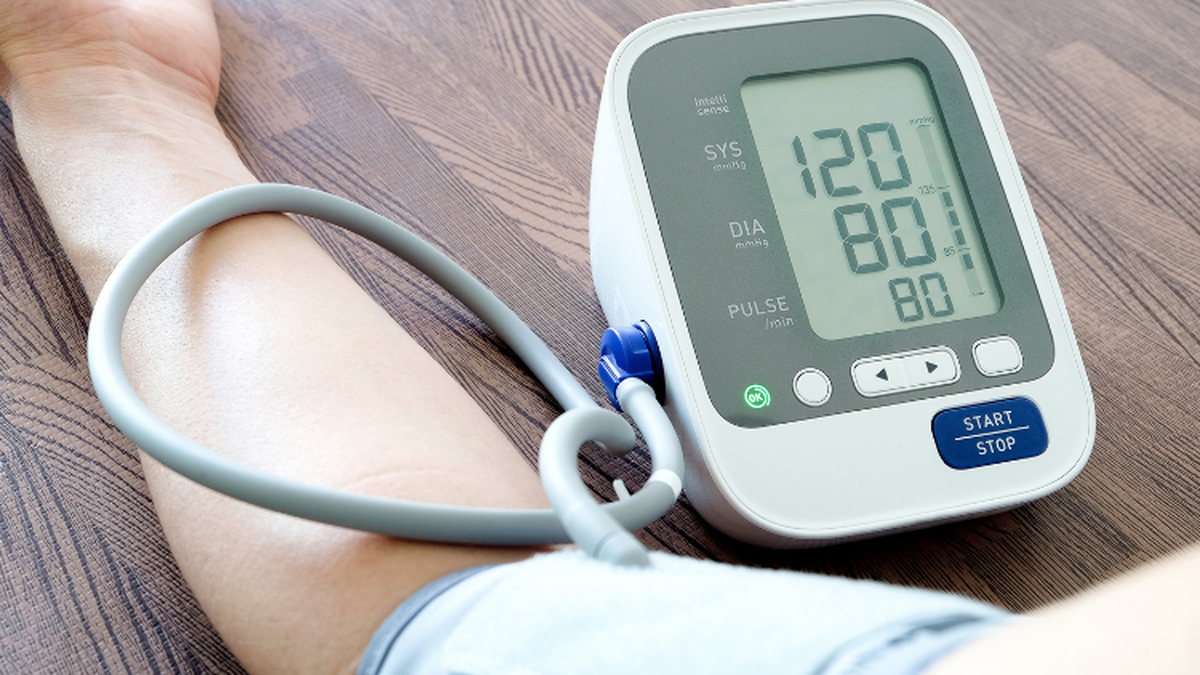Without drugs, here are the alternatives to manage high blood pressure
Mr Rasheed Abubakar has been diagnosed with high blood pressure for years yet, he uses no medication to manage it. Despite being over 60 years, his active life has got him too preoccupied to visit the hospital on a regular basis for drugs to manage the condition. Although he could be considered as one of […]

Mr Rasheed Abubakar has been diagnosed with high blood pressure for years yet, he uses no medication to manage it. Despite being over 60 years, his active life has got him too preoccupied to visit the hospital on a regular basis for drugs to manage the condition.
Although he could be considered as one of the very few lucky ones, skipping drugs to manage high blood pressure has sent many to their early grave as well as made others have some other medical conditions.
- PODCAST: The Weird Things Nigerians Do For Drugs
- Yes to Chinese COVID-19 vaccine production in Nigeria but…
High blood pressure is considered to be 140/90mmHg or higher (or 150/90mmHg or higher if the individual is over the age of 80). Ideal blood pressure is usually considered to be between 90/60mmHg and 120/80mmHg.
A Family Medicine & Geriatrics expert based in Pennsylvania, Dr Melinda Ratini has said that there are lifestyle changes that individuals can engage in to lower their blood pressure.
In a publication published by WebMD and reviewed by Dr Ratini advise, “If you have high blood pressure, there’s plenty you can do every day to control it. Eating healthier, exercising more, and tweaking other day-to-day habits can help keep your readings in check. That might keep you from needing medication to keep your numbers where they should be.”
She suggested 12 non-medicinal options for managing high blood pressure thus;
Healthy diet

The expert is of the view that blood pressure can be reduced through the Dietary Approaches to Stop Hypertension (DASH) diet. This is by eating lots of whole grains, fruits, vegetables, low-fat dairy as well as foods that don’t have much fat or cholesterol. DASH diet includes lean meats, poultry, fish, and nuts and should be high in protein and fiber. Avoid sugary drinks, red meats, and sweets, she advised.
Lose extra weight

Shedding a few extra pounds can lower the blood pressure. Too much bulk around the waist can affect BP. For women, a waist of more than 35 inches is high. For men, it’s more than 40 inches.
Exercise

Exercise can help lower both blood pressure and weight. She suggested, ” Aim to get at least 150 minutes of physical activity each week. Look for aerobic workouts that make your lungs and heart work a little harder. Try things like brisk walking, biking, swimming, or dancing. Even chores like raking leaves or washing windows count.”
Sleep

Getting enough sleep is an important way to keep the heart and blood vessels healthy. Many people need at least 7 hours of high-quality sleep each night.
Sodium reduction

Too much sodium can raise the blood pressure. Aim for no more than 1,500 milligrams a day. Asides salt sprinkled in foods, sodium can also hide in packaged foods, sandwiches, pizza and other items.
Increase potassium

Blood pressure is likely to be higher if individuals don’t get enough of this nutrient. Foods high in potassium include; banana, Spinach, beans, tomatoes, oranges, yogurt, and sweet potatoes. She warned people with medical issues like kidney disease or who take certain medicines may have to be careful with potassium.
Manage Stress

Find ways to cope with stress, like meditation, yoga, or deep breathing. Each person should take time to relax and do things they enjoy, whether it’s listening to music, gardening, or spending time with friends.
Limit alcohol

Drinking too much of alcohol can raise blood pressure. People who are on medication for their blood pressure, alcohol may affect how well it works. Women should try to have no more than one drink a day. For men, it’s two.
Stop Smoking

It raises blood pressure and makes a heart attack or stroke more likely. Smoking hurt the linings of the blood vessels and it makes some medicines less effective.
Be mindful of Caffeine

Those who regularly drink coffee, soda, and other drinks with caffeine, it may not affect their BP much. But those who rarely have it, caffeine can cause a short spike in their blood pressure when they drink it.
Regular blood pressure check

Check BP regularly to ensure it doesn’t get too high. High blood pressure often doesn’t have symptoms. So measuring the BP is the best way to tell if diet, exercise, and other lifestyle changes are working.
Keep other conditions in check

When the overall health is well managed, it will help keep blood pressure in check. Ensure other health issues such as diabetes, high cholesterol, sleep apnea, and thyroid disorders are under control.
